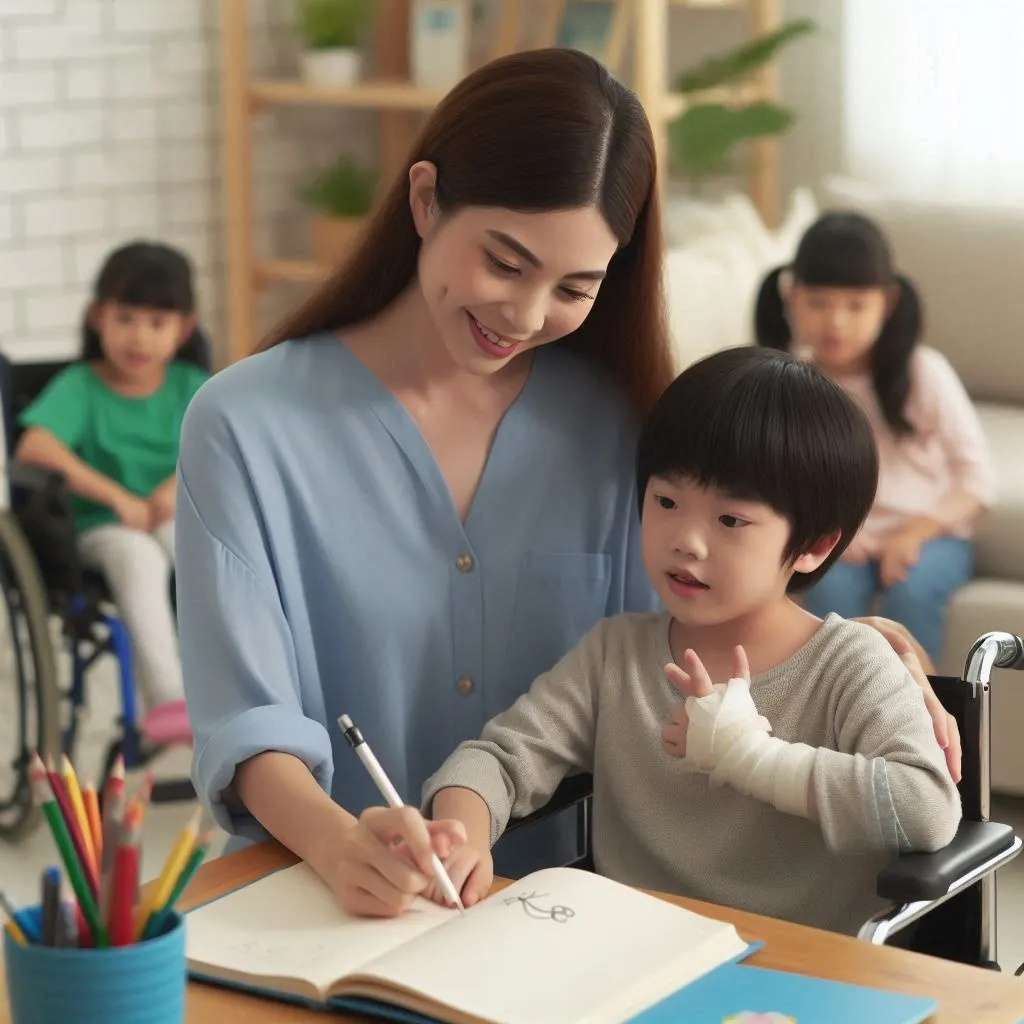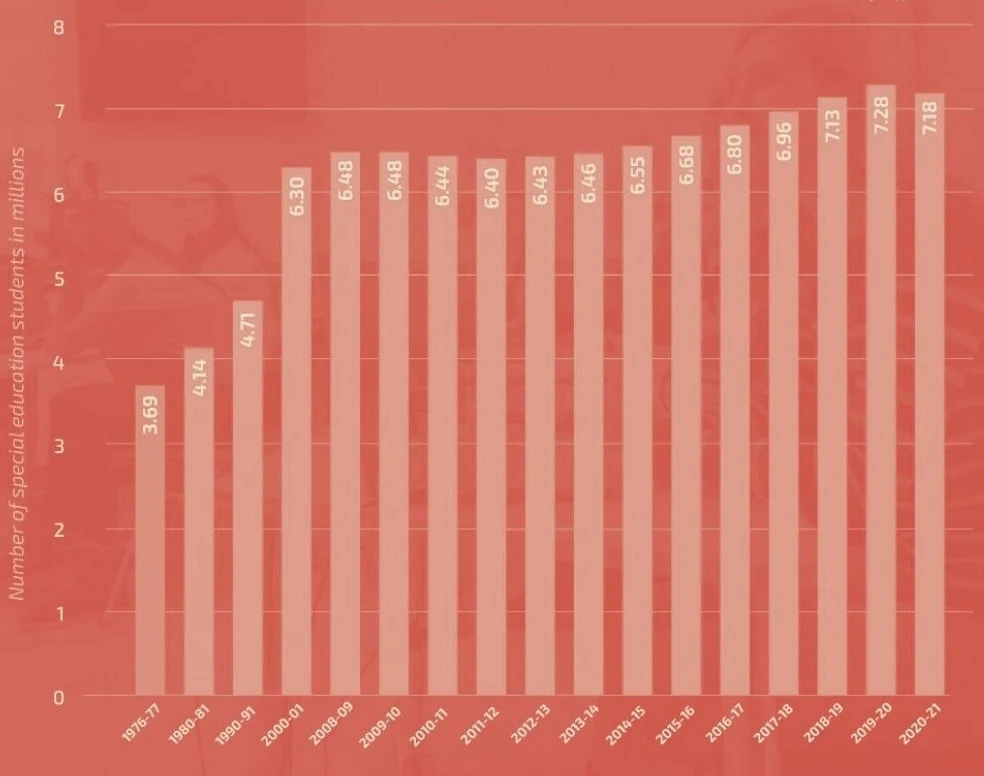| The best and most beautiful things in the world cannot be seen or even touched they must be felt with the heart-Helen Keller |
As a parent, one of your most profound desires is to see your child thrive and succeed. When your child has special educational needs, navigating the educational system can be challenging and sometimes overwhelming. Special education caters to children with disabilities who vary significantly from the average in social, mental, or physical aspects, necessitating adjustments in standard educational practices. This specialized instruction supports children with emotional, behavioral, or cognitive challenges; intellectual, hearing, vision, speech, or learning disabilities; advanced academic abilities; and orthopedic or neurological impairments. Understanding the resources available and how to advocate effectively can make a significant difference in your child's educational journey.
Understanding Special Education
Pic Source: US.news
Special education is a tailored educational service designed to meet the unique needs of children with disabilities. It encompasses a variety of supports and services to ensure that every child receives an appropriate education, regardless of their challenges. These services are governed by laws like the Individuals with Disabilities Education Act (IDEA) in the United States, which ensures that children with disabilities have access to a free and appropriate public education (FAPE).
Here in this article, we have provided a graphic representation of data that contains information regarding the number of Special Education students in the USA.
During the 2021–22 school year, 7.3 million students aged 3–21 received special education and related services under IDEA, accounting for 15 percent of all public school students. Among these students, the most prevalent category of disability was specific learning disabilities, which affected 32 percent of those receiving special education services.
About 95.2% of school-age students who receive services under IDEA go to regular schools. The most common disability among students in the US is a specific learning disability.
Key Highlights of Special Education Statistics
| Key Highlight | Detail |
|---|---|
| The US government allocated for special education in 2022 | $17.1 billion |
| Median annual salary of special education teachers | $61,820 |
| State with the highest percentage of students with disabilities in public schools | New York (20.5%) |
| Percentage of American Indian students in special education classes | 19% |
| Percentage of students with a disability in Australia | 1 in 10 students |
| Number of students requiring special education services in the UK | 1.49 million |
| Number of special needs education schools in Japan | 1,200 |
Get Help for Your Child as Parents: Special Education
As a parent, understanding and navigating the world of special education can seem overwhelming. If your child has learning difficulties or disabilities, you might feel lost in a maze of terminology, assessments, and individualized plans. This blog aims to demystify the process and provide practical steps to help you advocate effectively for your child’s education.
We will discuss a few steps to help your child in special education on this blog.
1. Recognizing the Need for Special Education
The first step in seeking help is recognizing that your child may benefit from special education services. Indicators might include consistent struggles with schoolwork, difficulty in social interactions, or noticeable delays in developmental milestones. Teachers or caregivers might also express concerns based on observations in the classroom or at daycare.
2. The Evaluation Process
If you suspect your child needs additional support, request an evaluation from your school district. This comprehensive assessment, conducted by a team of professionals, will determine whether your child qualifies for special education services. The evaluation typically includes:
- Observations and reports: Information from teachers and parents about the child’s performance and behavior.
- Standardized Tests: Assessments that measure your child’s skills and compare them to those of their peers.
- Specialized Tests: These may focus on specific areas, such as speech, motor skills, or cognitive abilities.
Parental consent is required for the evaluation, and once it begins, the school has a specified timeframe (usually 60 days) to complete it.
3. Understanding the IEP
If the evaluation concludes that your child is eligible for special education, the next step is developing an Individualized Education Program (IEP). This legally binding document outlines the specific services and support your child will receive.
An Individualized Education Program (IEP) outlines educational goals and services for students with disabilities. Developed by a team including teachers, parents, and specialists, it’s tailored to the student’s needs. IAN Institute of Rehabilitation & Research (IANIRR) supports this process, working with parents to create IEPs that match their child’s needs and goals.
The IEP includes:
- Present Levels of Performance: A detailed description of your child’s current abilities and challenges.
- Goals and Objectives: Measurable annual goals tailored to your child’s needs.
- Special Education Services: The specific services, such as speech therapy or occupational therapy, your child will receive.
- Accommodations and Modifications: Changes in the curriculum or classroom environment to help your child succeed.
- Participation in Regular Education: The extent to which your child will participate in general education classes.
Being a parent, you are a critical member of the IEP team, including teachers, special education professionals, and sometimes the child. Your insights and advocacy are vital in shaping an effective plan.
4. Advocating for Your Child
To ensure your child receives the best possible education, it’s important to be an active advocate. Here are some tips:
- Stay Informed: Learn about your child’s rights under IDEA and stay updated on special education policies.
- Communicate Regularly: Maintain open lines of communication with teachers and therapists. Regular updates can help you monitor your child’s progress and address any issues promptly.
- Be Prepared: Before IEP meetings, review your child’s progress reports and draft questions or concerns you may have.
- Seek Support: Join parent support groups or organizations. They can provide valuable resources, advice, and emotional support.
- Know Your Rights: If disagreements arise regarding your child’s education plan, know you have the right to mediation or due process hearings.
5. Long-Term Considerations
As your child progresses through their education, their needs may change. Regular IEP reviews ensure that the services provided are still appropriate. Transition planning, starting by age 14-16, prepares your child for life after high school, whether it involves higher education, vocational training, or other pathways.
Conclusion
Special education can be complex, but understanding the process and being proactive can make a significant difference in your child’s educational journey. Remember, you are not alone—schools, professionals, and support networks are there to assist you. By staying informed and advocating for your child’s needs, you can help create a positive and enriching educational experience tailored to their unique abilities.
Looking for a comprehensive parenting guide to ensure you are on the right track? Explore a wealth of parenting wisdom and educational insights in Moonpreneur’s blogs. Additionally, you can join our programs that nurture the next generation of innovators. Book a free trial now!



























